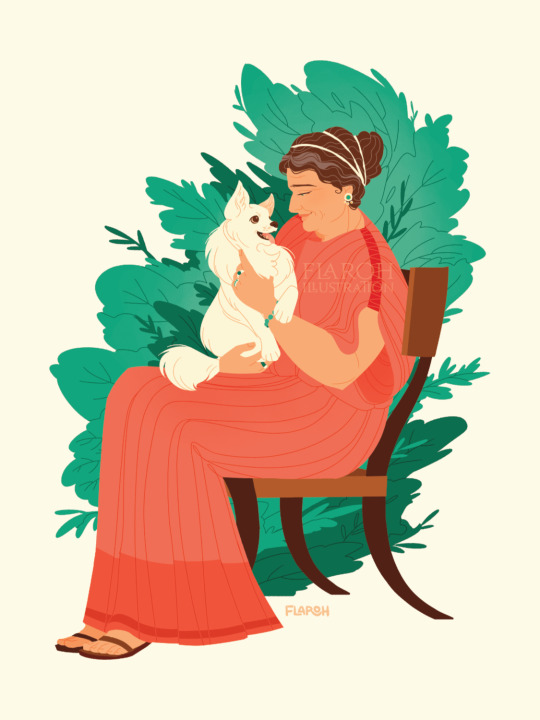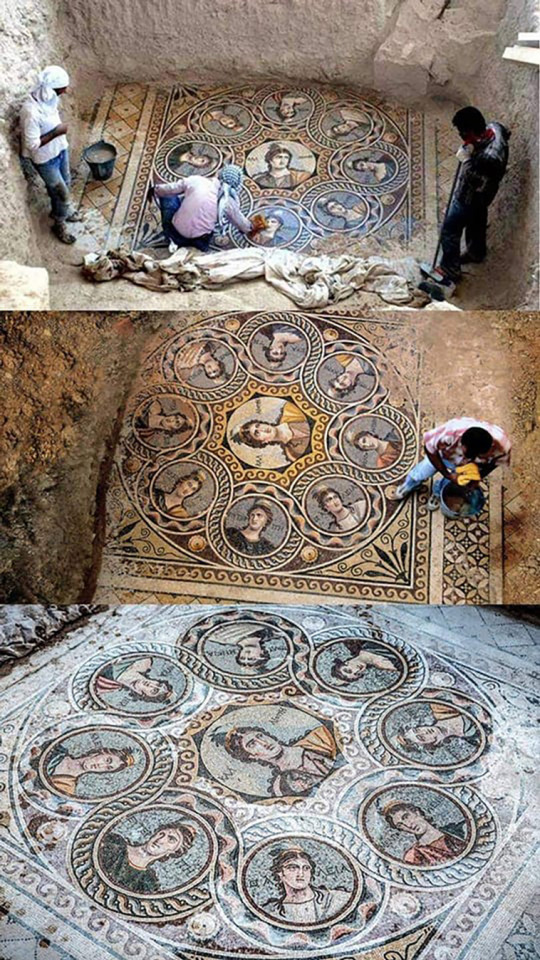#ancient Turkey
Explore tagged Tumblr posts
Text

"This is the tomb of the dog, Stephanos, who perished. Whom Rhodope shed tears for and buried like a human.
I am the dog Stephanos, and Rhodope set up a tomb for me"
This piece is a tribute to two members of the ancient world, who lived in the Greek city of Termessos in modern day Turkey. We know about them today as Stephanos, a dog, had a tomb dedicated to him by his owner, Rhodope, who was also laid to rest nearby. As far as I can research, we don't know the exact details of when they lived, or much about their lives, except that Rhodope wanted us to know how much Stephanos meant to her.
His tomb was found near Rhodope’s own inscribed sarcophagus, which states that she set up the tomb completely and exclusively for herself. This suggests she was a single, independent wealthy woman.
Stephanos' remains are lost to time, but based on the size, and his role as a lady's companion dog, it is likely he was a melitan breed. This breed was a small, spitz-type dog that was incredibly popular in antiquity.
#tagamemnon#rhodope and stephanos#ancient greece#classical studies#greek archaeology#ancient turkey#flaroh illustration
2K notes
·
View notes
Text
Nice that for once it isn't an economic document. Not so nice that it's about a catastrophe.
192 notes
·
View notes
Photo
Temple and sanctuary of Apollo in Didima, Turkey, one of the largest from the Hellenistic period. With a plan of 51m x 109m, it had 120 Ionic columns. The complex was a place as sacred as Delphi, it was never fully completed as it did not have a roof.

Majestic Place ♡
...ancient history
.



Didyma, Temple of Apollo
Photo credit: F. Tronchin
245 notes
·
View notes
Text

Stone carved Medusa from the Temple of Apollo at Didyma in Turkey.
#Stone carved Medusa from the Temple of Apollo at Didyma in Turkey#Temple of Apollo#Didyma Turkey#Medusa#stone statue#stone sculpture#ancient artifacts#archeology#archeolgst#history#history news#ancient history#ancient culture#ancient civilizations#greek history#greek art#ancient art
3K notes
·
View notes
Text
The site at Sayburç was inhabited during the Neolithic in the 9th millennium BC, a period when people shifted from a mobile hunter-gatherer lifestyle to farming and living in long-term settlements.
Depictions of people interacting. These picture of the stories that formed the ideology of the people of that period.”
1 note
·
View note
Photo

Sacred Waters ✨️ Pamukkale's Limestone Basins
2K notes
·
View notes
Text



Cappadocia, Turkey by Caspar Tromp
#cappadocia#turkey#landscape photography#nature photography#street photography#film photography#35mm#architecture#ancient history#textiles#lensblr#curators on tumblr
1K notes
·
View notes
Photo

The nine muses of Ancient Greece discovered in the ancient Greek city of Zeugma, now in modern-day Turkey. The mosaics have been almost perfectly preserved for over 2,000 years
4K notes
·
View notes
Text









December 2024. Day one in Turkey. The Library of Celsus! From the Ephesus Archaeological Site. Photos by me. More from Turkey here.
[Image descriptions: tourists visiting the ruins of the Library of Celsus. End description.]
#my photos#photography#travel#Europe#Asia#Turkey#kuşadası#ephesus#library of celsus#archaeology#ruins#Ancient Rome#Ancient Greece
154 notes
·
View notes
Text

Library of Celsus in Ephesus, Anatolia, TÜRKIYE
#library#celsus#libreria#ancient#roman#building#edificio#romano#ancestral#ephesus#efesios#anatolia#türkiye#turkey#turquia#europe#europa#asia
270 notes
·
View notes
Text
Mochis x the Olympics !




Some card art I did for the mochidex ! So glad Im finally able to post these. You should totally get the bot in your server if you haven’t, lots of amazing artists that put their hard work into this event !! super fun
#hetalia#aph japan#aph america#aph russia#aph china#aph turkey#aph turkiye#aph greece#aph hong kong#aph malaysia#aph italy#aph germany#aph belarus#aph itabros#aph rome#aph ancients#aph taiwan#aph finland#aph switzerland#aph iceland#aph norway#ameripan#aph hongice#hongice#aph romano#mochitalia#my art#hetalia world stars
321 notes
·
View notes
Text
What an incredible find! Not necessarily a new discovery, but one that now has additional evidence.
23 notes
·
View notes
Text

Hetalia Exercise Doodles
#hetalia#aph turkey#aph ireland#aph ancients#aph south korea#hws turkey#hws ireland#hws ancients#hws south korea#art#digital art#artwork
165 notes
·
View notes
Text

5th-Century Amulet Depicting King Solomon Spearing the Devil Discovered in Turkey
Archaeologists in Turkey say they have discovered an ancient amulet depicting a Biblical figure in a battle against the devil.
The rare artifact was found during an ongoing excavation project in Hadrianopolis, an ancient city near Karabük, and dated to the fifth century.
Hadrianopolis was used as a settlement during various periods of history, including during the Roman and Byzantine empires.
Excavation and restoration work has been taking place there since 2003, with over a dozen buildings discovered and multiple massive mosaics found over the years.
The pendant, made of bronze, shows King Solomon, according to a news release issued by Turkey's Karabük University. The ancient ruler is seen riding a horse and holding a spear while defeating the devil, according to Dr. Ersin Çelikbaş, an associate professor at the university. Solomon appears in multiple religions, including Judaism, Catholicism and Islam.



"The depiction of Prophet Solomon on this necklace surprised us and revealed the importance of the artifact for Anatolian archaeology," said Çelikbaş. Anatolia is a region of Turkey.
The phrase "Our Lord defeated evil" is written on one side of the amulet, and the names of four biblical angels — Azrail, Gabriel, Michael and Israfil — are written on the other side. The pendant would have been used as a charm to protect against evil or danger, Çelikbaş said.
Çelikbaş added that the amulet is related to the military nature of the city, noting that previous excavations had "determined the existence of a cavalry unit" in Hadrianopolis. This is the first pendant of its kind to be found in Turkey, Çelikbaş said, though a similar piece was once found in Jerusalem.
"The presence of similar works in these two distant geographies indicates that Hadrianopolis was an important religious center in ancient times," Çelikbaş said.
By Kerry Breen.

#5th-Century Amulet Depicting King Solomon Spearing the Devil Discovered in Turkey#Hadrianopolis#bronze#bronze pendant#ancient artifacts#archeology#archeolgst#history#history news#ancient history#ancient culture#ancient civilizations#ancient art
201 notes
·
View notes
Text
Basilica Cistern, Istanbul, Turkey built in the year 532 during the reign of Justinian I. It supplied the city with water and is approx. 9800 m² of surface. It is capable of holding between 80,000 and 100,000 m³ of water.
1K notes
·
View notes
Text
person looking at any global or historical phenomanon: surely i can analyze this strictly through the united states' racial structures, right? right?
#mine*#b4 ppl call me slurs over this - i made this w both greece/turkey and the literal ancient roman empire in mind#also now that i think abt it thats how americans view antisemitism
401 notes
·
View notes